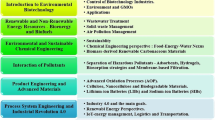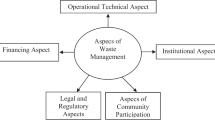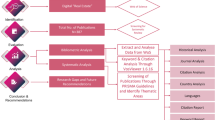Abstract
The Department of Housing and Urban Development (HUD) is conducting the Modular Integrated Utility System (MIUS) Program devoted to development and demonstration of the technical, economic, and institutional advantages of integrating the systems for providing all or several of the utility services for a community. Possible utility services include the provision of electric power, domestic heating and cooling, potable water, fire protection water, liquid waste treatment, and solid waste management. The objective of the MIUS concept is to provide the desired utility services in a way that is consistent with reduction in the use of critical natural resources, protection of the environment, and minimization of cost.
A MIUS might be sized to accommodate several hundred or a few thousand multifamily dwelling units, nearby single-family housing, and associated commercial facilities. The MIUS is modular in that it can be installed near appropriate users in phase with the actual demands of community development or redevelopment. It uses an integrated systems approach whereby some resource requirements of one service are met by utilizing the effluent of another. For example, heat rejected from electrical generation might be used for residential space heating, and the efflluent from liquid waste treatment might be used for fire protection and/or cooling tower water.
This paper summarizes the MIUS concept and the type and extent of potential application. Possible interactions between MIUS and the local community are identified from a comparison of technological and physical characteristics of MIUS with alternative conventional utilities. Possible impacts on land use and patterns of community development are emphasized.
Similar content being viewed by others
References
Boegly, W. J., Jr., Haynes, V. O., Hise, E. C., Compere, A. L., and Griffith, W. L.: 1973? MIUS Technology Evaluation—Solid Waste Collection and Disposal, ORNL-HUD-MIUS-9.
Boegly, W. J., Jr., Spiewak, I., Thomas, D. G., Reed, S. A., Griffith, W. L., Compere, A. L., and Wright, H. W.: 1974, MIUS Technology Evaluation — Collection, Treatment, and Disposal of Liquid Wastes, ORNL-HUD-MIUS-16.
Compere, A. L., Griffith, W. L., Boegly, W. J., Jr., Spiewak, I., Thomas, D. G., and Reed, S. A.: 1976, MIUS Technology Evaluation — Water Supply and Treatment, ORNL-HUD-MIUS-21.
Department of Housing and Urban Development: 1975, Final Environmental Statement—Application of Modular Integrated Utility Systems Technology, HUD-PDR-EIS-75-1F.
Kugelman, I. J.: 1971, Status of Advanced Waste Treatment, report presented to the Long Island Marine Resources Council, Hauppauge, Long Island, N.Y.
Miller, A. J., Samuels, G., Boegly, W. J., Jr., and Breitstein, L.: 1973, ‘Technology Evaluation for MIUS’, 8th Intersociety Energy Conversion Engineering Conference Proceedings, University of Pennsylvania, Philadelphia, Pennsylvania.
Mixon, W. R.: 1975, ‘A New Look at Modular Integrated Utility Systems (MIUS)’, District Heating 61, 8–11.
Samuels, G. and Meador, J. T.: 1974, MIUS Technology Evaluation — Prime Movers, ORNL-HUDMIUS-11.
Author information
Authors and Affiliations
Rights and permissions
About this article
Cite this article
Mixon, W.R. The modular integrated utility system (MIUS) as a potential influence on community development. Water Air Soil Pollut 7, 261–269 (1977). https://doi.org/10.1007/BF00280868
Received:
Issue Date:
DOI: https://doi.org/10.1007/BF00280868




